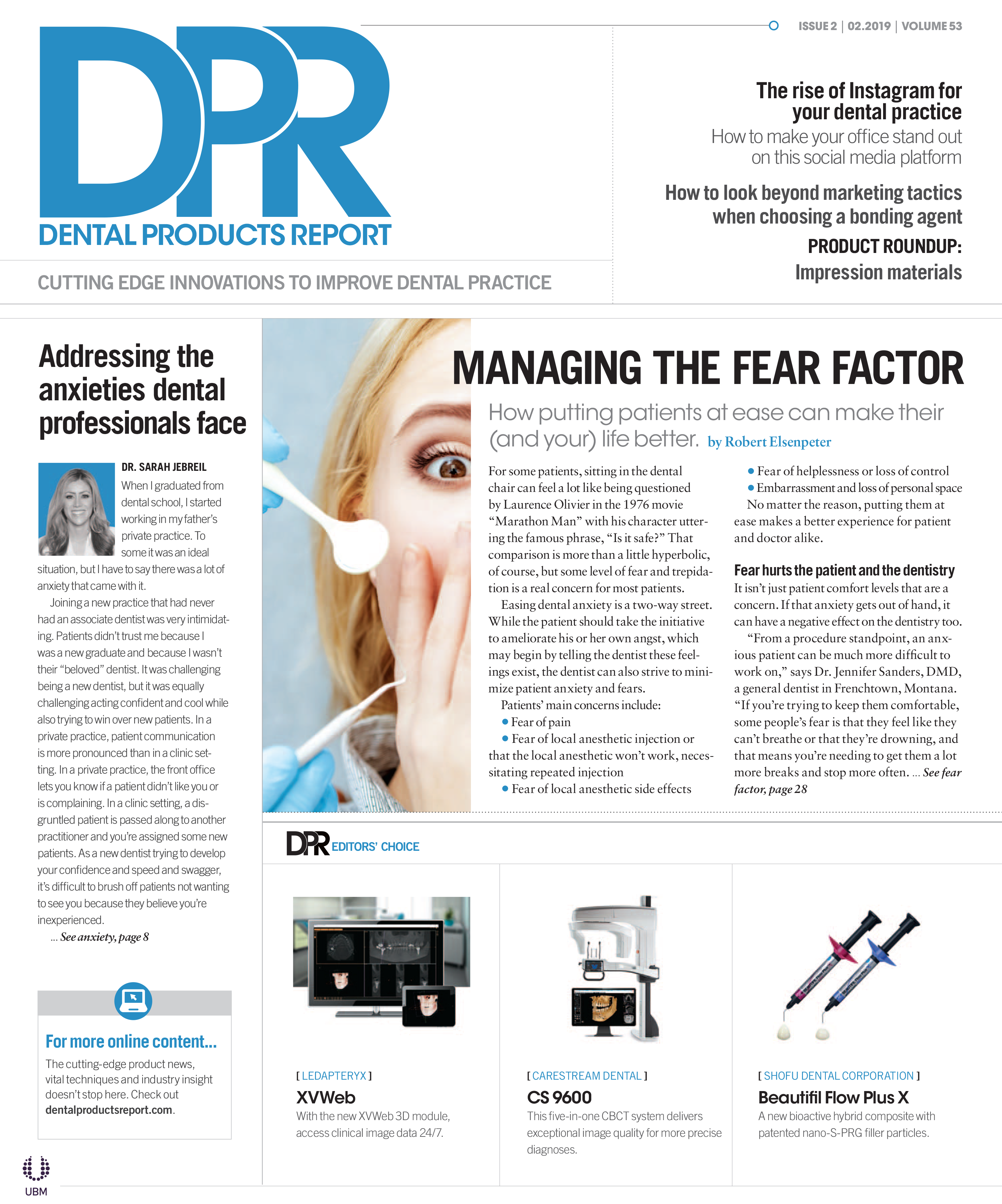Addressing the anxieties dental professionals face
Patients aren't the only ones dealing with stress at the dental office.

When I graduated from dental school, I started working in my father’s private practice. To some it was an ideal situation, but I have to say there was a lot of anxiety that came with it.
Joining a new practice that had never had an associate dentist was very intimidating. Patients didn’t trust me because I was a new graduate and because I wasn’t their “beloved” dentist. It was challenging being a new dentist, but it was equally challenging acting confident and cool while also trying to win over new patients. In a private practice, patient communication is more pronounced than in a clinic setting. In a private practice, the front office lets you know if a patient didn’t like you or is complaining. In a clinic setting, a disgruntled patient is passed along to another practitioner and you’re assigned some new patients. As a new dentist trying to develop your confidence and speed and swagger, it’s difficult to brush off patients not wanting to see you because they believe you’re inexperienced.
Coming out of school I thought I could do everything - extractions, root canals, pedo, you name it. I soon began to learn root canals, extractions and pedo all give me anxiety. Case selection is really a key factor in each of these specialties as well as managing patients’ (and parents’) expectations. Since graduating I can say I sleep much better at night referring all of these out. The benefit is that if something fails or goes wrong at the specialist’s office, I’m the one the patient returns to for guidance. Having a team of doctors to refer to also fosters great relationships, which creates a fantastic support system that’s much needed within our profession.
Trending article: Setting up your practice for success in 2019
Now that I’m a much more seasoned practitioner, I would have to say there are three things that still give me anxiety.

1. A patient leaves your practice for some reason and his or her new dentist is telling him or her that your work needs to be replaced. This is beyond frustrating because we’re all colleagues and working to give the best to our patients. It would be so nice if, as a New Year’s resolution, we could all do the courtesy of calling the patient’s prior provider and discussing our findings if we deem the work questionable. We may learn a wealth of knowledge and the circumstances that lead us to our findings. We’re all professionals and we should all support each other. When this situation happened to me, I called my patient’s new dentist and discussed the case with the dentist. She was so thankful that she could now understand the patient’s previous condition. It was a win-win for everyone because patients don’t enjoy repeating procedures over again either.
2. You get a bad review online. This is so common that it shouldn’t bother us, but it does. Most often people leave bad reviews because of money, or they’re just in a really foul mood and need to vent their negativity. What’s important in these situations is first reaching out to the offender and finding a way to ameliorate the situation. If that doesn’t work, then try writing a thoughtful, heartfelt response. Other reviewers love to see that you’re human, and they love to read the other side of the story. Don’t be quick to post your response; take some time and really write something that others will be compelled to read and side with you.
3. One of your trusted employees quits or disappears. This is a nightmare situation. Your office is running smoothly, and then your trusted employee gives you his or her two weeks’ notice. This can really shake your world. You spend more time with your staff than you do with your family. They’re like family, and when they leave it’s heart-wrenching and stressful at the same time. You have to worry about what the patients will say, you have to find a replacement, and you have to make sure you understand all the duties he or she was doing before he or she leaves.
The best thing to do is ensure everyone is cross-trained and that anyone can pick up the slack when needed. Systems should be in place in the office so that if someone is sick or on vacation, then all the other team members understand their office duties and can step in at any time. Preparing yourself for the worst is key. Employees come and go, but if you have some really great ones, then always make sure you make them feel appreciated.
